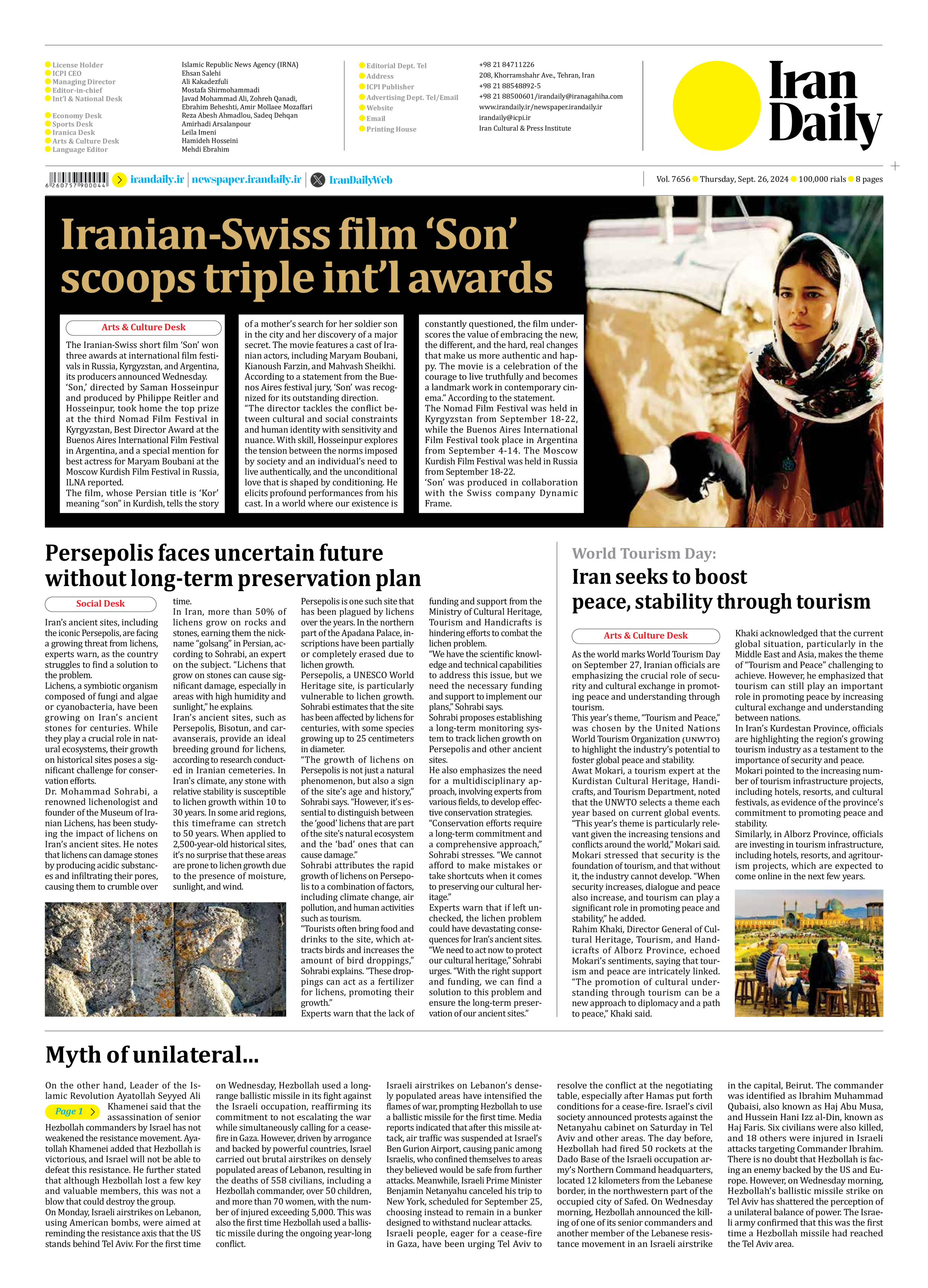
Myth of unilateral...
Page 1
On the other hand, Leader of the Islamic Revolution Ayatollah Seyyed Ali Khamenei said that the assassination of senior Hezbollah commanders by Israel has not weakened the resistance movement. Ayatollah Khamenei added that Hezbollah is victorious, and Israel will not be able to defeat this resistance. He further stated that although Hezbollah lost a few key and valuable members, this was not a blow that could destroy the group.
On Monday, Israeli airstrikes on Lebanon, using American bombs, were aimed at reminding the resistance axis that the US stands behind Tel Aviv. For the first time on Wednesday, Hezbollah used a long-range ballistic missile in its fight against the Israeli occupation, reaffirming its commitment to not escalating the war while simultaneously calling for a ceasefire in Gaza. However, driven by arrogance and backed by powerful countries, Israel carried out brutal airstrikes on densely populated areas of Lebanon, resulting in the deaths of 558 civilians, including a Hezbollah commander, over 50 children, and more than 70 women, with the number of injured exceeding 5,000. This was also the first time Hezbollah used a ballistic missile during the ongoing year-long conflict.
Israeli airstrikes on Lebanon’s densely populated areas have intensified the flames of war, prompting Hezbollah to use a ballistic missile for the first time. Media reports indicated that after this missile attack, air traffic was suspended at Israel’s Ben Gurion Airport, causing panic among Israelis, who confined themselves to areas they believed would be safe from further attacks. Meanwhile, Israeli Prime Minister Benjamin Netanyahu canceled his trip to New York, scheduled for September 25, choosing instead to remain in a bunker designed to withstand nuclear attacks.
Israeli people, eager for a cease-fire in Gaza, have been urging Tel Aviv to resolve the conflict at the negotiating table, especially after Hamas put forth conditions for a cease-fire. Israel’s civil society announced protests against the Netanyahu cabinet on Saturday in Tel Aviv and other areas. The day before, Hezbollah had fired 50 rockets at the Dado Base of the Israeli occupation army’s Northern Command headquarters, located 12 kilometers from the Lebanese border, in the northwestern part of the occupied city of Safed. On Wednesday morning, Hezbollah announced the killing of one of its senior commanders and another member of the Lebanese resistance movement in an Israeli airstrike in the capital, Beirut. The commander was identified as Ibrahim Muhammad Qubaisi, also known as Haj Abu Musa, and Hussein Hani Izz al-Din, known as Haj Faris. Six civilians were also killed, and 18 others were injured in Israeli attacks targeting Commander Ibrahim. There is no doubt that Hezbollah is facing an enemy backed by the US and Europe. However, on Wednesday morning, Hezbollah’s ballistic missile strike on Tel Aviv has shattered the perception of a unilateral balance of power. The Israeli army confirmed that this was the first time a Hezbollah missile had reached the Tel Aviv area.







